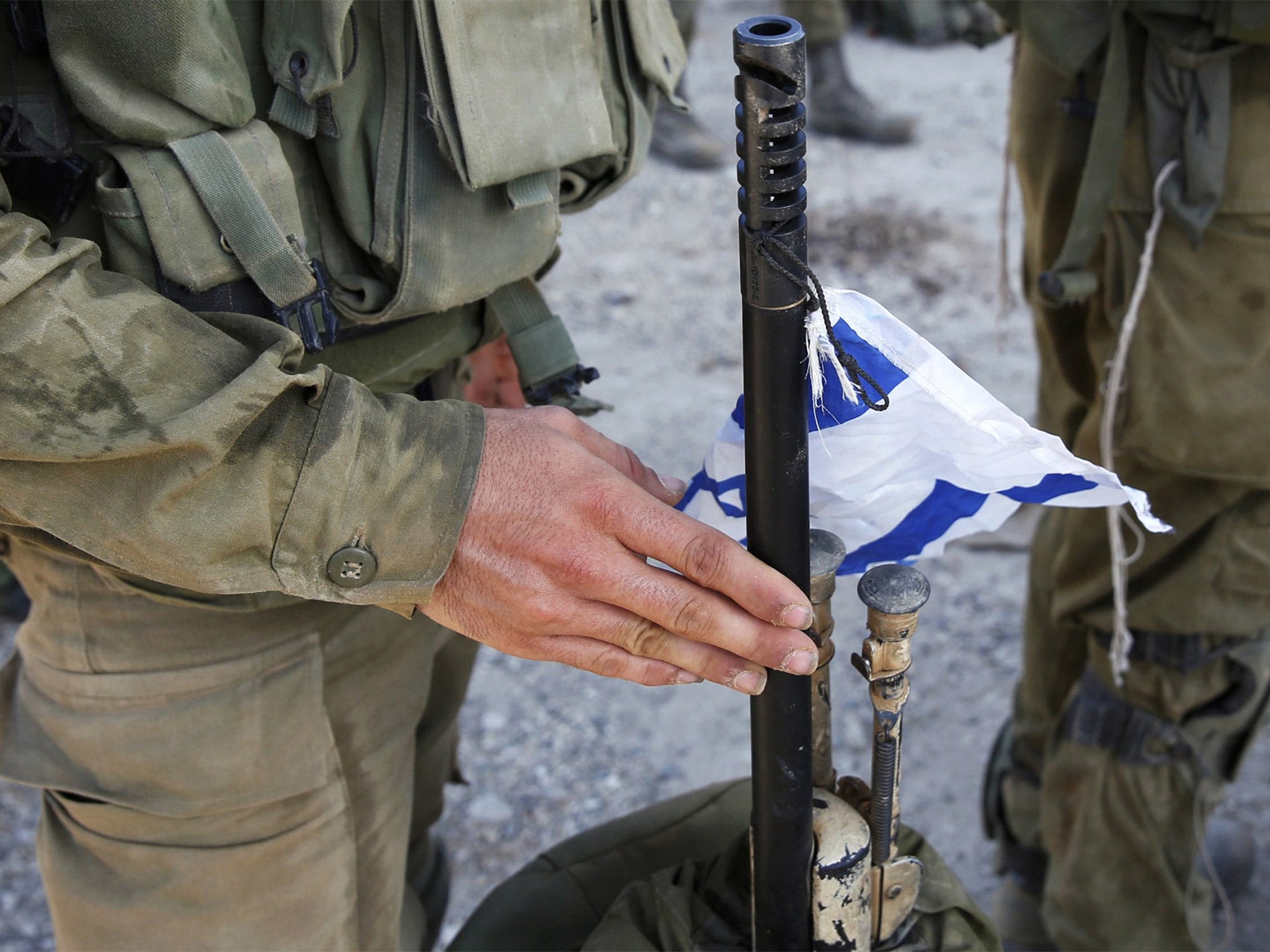Israel-Gaza conflict: Shimon Peres criticised for calling time on 22-day war
It is unclear whether the former Israeli President’s call would encourage other politicians to come out in favour of winding up the hostilities, or would simply be ignored

Shimon Peres has broken ranks with the prevalent mood in Israel, saying it is time to "find a way to stop" the 22-day war in Gaza.
Mr Peres’s comments, made hours before the security cabinet convened to decide whether to further escalate the war or try to move towards a diplomatic exit, were immediately denounced as defeatist by legislators in Prime Minister Benjamin Netanyahu’s Likud party.
Speaking to reporters while visiting wounded soldiers at Ichilov Hospital in Tel Aviv, the 91-year-old Mr Peres, who ended his term as President last week, told the soldiers: “You fought amazingly. Each one of you is allowed to and must feel that he is a real hero.”
The Nobel laureate later went out on a limb by saying that the military campaign, launched with the stated objective of halting rocket fire from Gaza, had “fulfilled itself... Now what is needed is to find a way to stop it. It will take more time, I don’t know exactly how much, maybe days or a little more, but it will end”.
It was unclear whether Mr Peres’s call would serve as a bellwether, encouraging other politicians to come out in favour of winding up the hostilities, or would simply be ignored. Zeev Elkin, chairman of the Knesset’s foreign affairs and defence committee, voiced consternation at Mr Peres. “Is Israel supposed to stop defending its residents and raise a white flag?” he asked. “Hamas still hasn’t felt a blow that would cause it to stop firing.”
Today, an intensification of Israeli fire that began on Tuesday, when over a 100 Palestinians were killed in Gaza, continued despite Israel’s declaring a limited “humanitarian window’’ from 3pm to 7pm local time. Reports from Gaza said there were more than 30 fatalities during those four hours. Asked about this, Major Arye Shalicar, of the Israeli Army spokesman’s unit, said that the window never applied to the Sajaiya neighbourhood of Gaza City, Beit Hanoun, eastern Rafah, south-east Rafah and “one or two other areas where there is a Hamas stronghold or tunnel network’’.
Major Shalicar said: “We made clear it is not in the whole of Gaza and that we will respond to fire from any area.” He said 30 rockets were fired at Israel during the same humanitarian window.
The heightened bombardment of Gaza in recent days is seen as an attempt by Mr Netanyahu and the Defence Minister Moshe Yaalon to try to put more pressure on Hamas without deciding on the all-out re-occupation of the Strip that is being advocated by Foreign Minister Avigdor Lieberman and others on the far right. It came as the army was said to be days away from completing the stated goal of the ground operation, launched 12 days ago after devastating aerial bombardments: the dismantling of cross-border tunnels Hamas has dug to infiltrate Israel.
With the completion of that mission, a new purpose for the troop presence in Gaza will have to be found, unless the forces are withdrawn unilaterally or as part of a ceasefire. Mr Netanyahu faces pressure in his cabinet and party to further escalate the war and Israeli public opinion is wary of an inconclusive end to the fighting that would merely set the stage for a future round of conflict. But US President Barack Obama urged Mr Netanyahu on Sunday to reach an immediate ceasefire. Expanding ground operations significantly would escalate tensions with the US.
“Netanyahu is cautious and is afraid something like that could bog down with a high price in soldiers’ lives and that Israel will be sucked into reconquering Gaza, something he realises is not in Israel’s interests internationally and which would result in tremendous friction with Obama,” said Leslie Susser, diplomatic editor of The Jerusalem Report.
Hamas has said it will not hold fire unless its demands that Egypt and Israel lift border restrictions that have crippled the Gaza economy are met and that Israel release Hamas prisoners it recently re-arrested.
Join our commenting forum
Join thought-provoking conversations, follow other Independent readers and see their replies
Comments
Bookmark popover
Removed from bookmarks